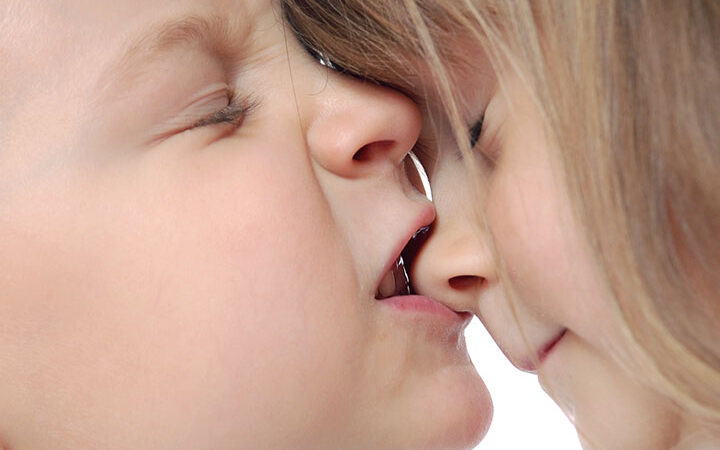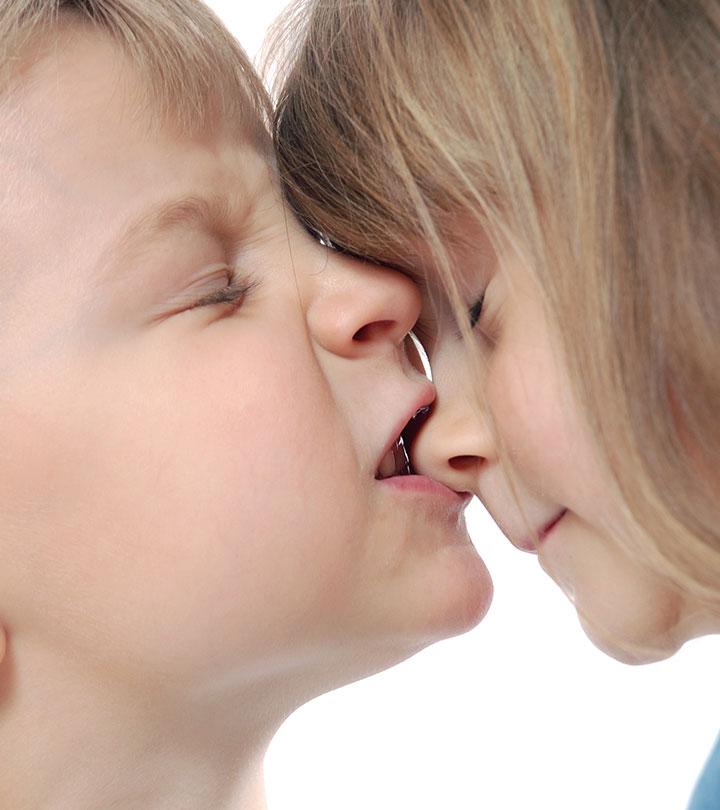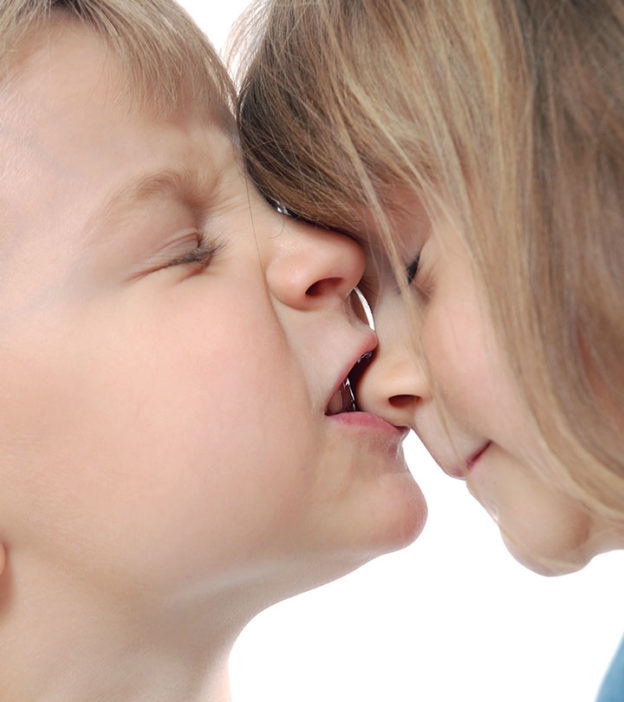A child biting someone could be a regular part of their development as they cannot express their actions or feelings through words. However, it is not a good way since it results in severe physical harm to the bitten person. It also leads to strained relationships and upsets other children, parents, and adults. Read on to understand why children bite and how to respond to their behavior.
Why Do Kids Bite?
Biting is common in young children but could worry the parents, especially when the child continues to show the behavior for a long time. Also, it is not an acceptable way of expression as the child reaches toddlerhood around three to five years of age. Some possible reasons for the child’s biting behavior are (1) (2).
- To ease the pain due to teething
- To express their frustration and other feelings they can’t communicate
- Out of curiosity about the consequence, especially when playing with other children
- When they are hungry, sleepy, or bored
- To enjoy or experience the physical sensation of biting (oral stimulation)
- To defend themselves in particular situations
- To take control of a situation and be in power among a group
- To get attention
The above reasons will not make biting acceptable. You should disapprove and help them understand new ways to handle certain things.
How To Stop Children From Biting?
To prevent the biting behavior in children, you should make them stay distracted and occupied physically and mentally. You can teach your children the following appropriate ways to communicate their needs and emotions (3) (4).
- If your child is at the teething phase, they naturally become more agitated and feel the need to bite onto something. In such situations, ensure to provide a teething ring or something spongy that they can bite into to avoid their teeth from biting deep into someone’s arm.
- Create an environment that does not cause the child to be irritable to bite someone. Some children may dislike loud music, crowds, or even eating and napping during the usual time, which may cause immense frustration, and they bite.
- Avoid shuffling up the child’s eating schedule as it may leave them starving and trigger them to bite. Ensure to feed them well and on time.
- Encourage the children to use words as they grow. For instance, if your child is not feeling alright, tell them to speak up. Ask them to put it out in words instead of biting. They can express their feelings by saying things they don’t like or want to stop. This way, their communication and language skills improve.
- Using an external source such as a punching bag is an excellent way to relieve the child’s rage. Ask them to punch it, pinch it, or even bite into it if they feel like it and let out all the anger. Physically working on relieving their stress using a non-living and soft thing is better than leaving them irritable until they bite someone.
- Try spending a reasonable amount of time with your child. You can play their favorite game, read a story, take o the park, or try something new together.
- In some circumstances, a change may trigger a child to bite. It could be a change–moving to a new locality, welcoming a younger sibling into the house, or transforming daily routine. If you think your child could be prone to biting someone in such a situation, keep an eye on it and help them find other ways to relieve themselves.
- If your child has already bitten someone, be firm and tell them it is not an acceptable action and let them know the consequences. They should understand it is wrong and learn to regret their unethical decision.
- Punishing the child by biting them back or hitting them is not how you deal with it. Young children learn most traits by imitating the adults, and if you do the same, the child may be under the impression that what they did is also correct.
- If no other means of solving the issue works out, the only option is to observe your child for a few days closely. You may have to keep continuing until you find confidence in the child that they won’t bite anyone. The issue is severe enough to cause lifelong grudges between the child and the one they bite, so find the root cause and help your child get out of it. If you feel that your child’s biting is not improving with your reinforcing positive behavior, take them to a doctor.
So, the next time you ponder “why do children bite,” understand that this action may indicate an underlying suppressed emotion. They may be trying to express themselves through this socially unacceptable act. Explain to them that there are other healthy ways to express their overwhelming emotions. Refrain from using any punishments and seek the help of a counselor if the action continues.
Key Pointers
- Biting is a typical behavior often seen in younger children for several reasons.
- It could be a form of exploration for some as they are impulsive or lack self-control.
- Saying a firm ‘no’ to their behavior or creating a positive learning environment could help break the habit.
References:
MomJunction’s articles are written after analyzing the research works of expert authors and institutions. Our references consist of resources established by authorities in their respective fields. You can learn more about the authenticity of the information we present in our editorial policy.
The following two tabs change content below.





































